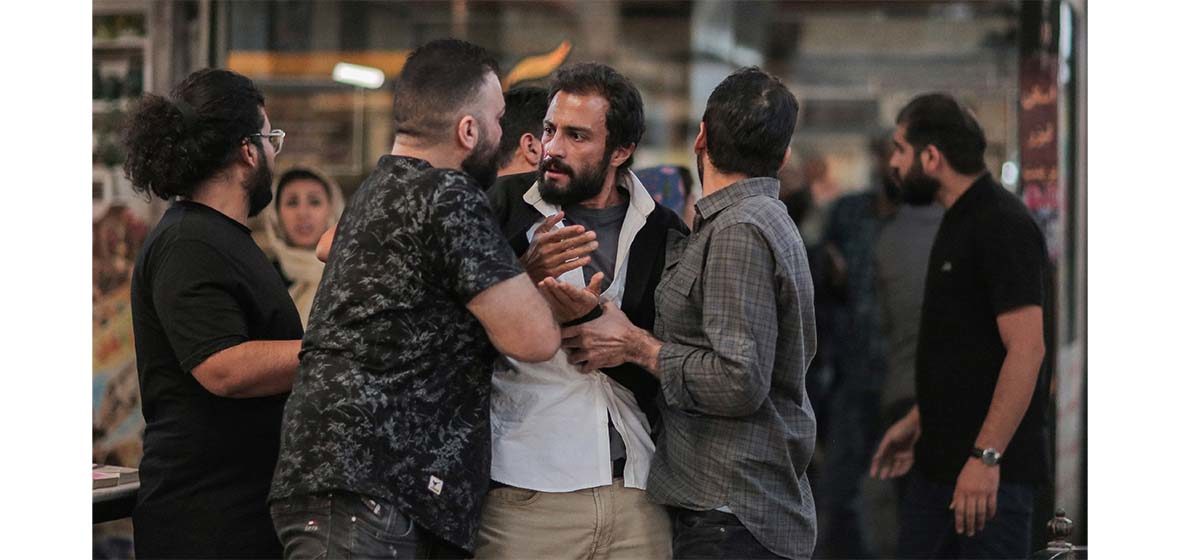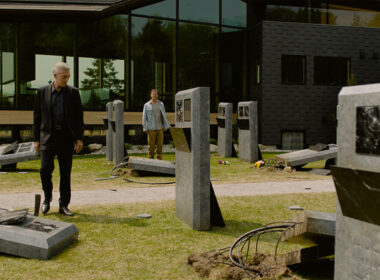Iranian director Ashgar Farhadi returns to his home country for this simple and often heartbreaking story about a prisoner accused of fabricating a good deed to appeal for a pardon. His best film since the Oscar-winning A separation
The only innocent person in A Hero is a young child with a severe speech impediment. Children are always innocent around adults. Their actions have fewer repercussions, yet they also understand the trauma surrounding them. The child in question is not only innocent but also a martyr – he agrees to use his flaw to benefit an adult. And yet, he’s not the story’s hero because, in Asghar Farhadi’s new film, heroism is a nuanced idea that gets taken from you as quickly as it’s given.
This story is about the child’s father, Rahim (Amir Jadidi). He is in jail over a debt to his ex-brother-in-law and is temporarily granted a two-day leave for a chance to settle his dues. He plans to sell a bag of golden coins found by his lover, Farkhondeh (Sahar Goldust). However, in a bout of last-minute guilt, or because the amount offered for the coins was less than expected, he decides to find the person who lost the bag and deliver it to her.
The story quickly escalates. The altruist prisoner returned his ticket because it was the right thing to do. Television interviews Rahim, and the population gathers to support his cause, aiming to convince the brother-in-law to forgive and forget. They organise a fundraiser where the community chips in to try to get as much money as possible. Even the son tries hard to make a speech in a moment that feels purposefully exploitive and heartbreaking. Rahim’s actions are manufactured by a community needing a beacon to follow – his heroism nothing but a projection.
As time passes and nothing comes to fruition, the main story starts revealing some cracks and more obstacles. To overcome them, Rahim concocts a series of little white lies he deems necessary to achieve his only goal. The more his little tricks are revealed, the more his character is preemptively judged by the same mob who was so quick to idolise him.
If anything here sounds familiar, Farhadi is exceptionally skilled at observing certain nooks in our society without satirising them. His style rings true. The characters talk with depth and candour. There is grief and sadness in their voices when they know they have to do something that hurts someone else. But they are also humans, and humans, when given a fair chance, are selfish.
Farhadi blew through the international scene in 2011 with the beautiful A Separation. Probably one of the best films of the last decade, it’s the story of a couple in disagreement if they should leave Iran for the sake of their son or stay to look after a mother with Alzheimer’s.
While his follow-ups have not reached the same streamlined, compelling drama as A Separation, they’ve all felt like engaging exercises in dramatic exposure. I find his stories fast-paced and very focused on the character. It’s like he’s unravelling everything without no sight unseen and just letting our knowledge of the surrounding society dictate if we should feel threatened or not. It’s not dissimilar to the tradition of Iranian filmmaking, which is why it doesn’t translate outside of it – his films The Past and Everybody Knows, shot in France and Spain, respectively, were not as compelling.
If anything, A Hero is more cynical than his other films, which can work for better or worse, depending on your mood. The tragedy of the status quo is, in his other films, unavoidable and therefore blameless. In A Hero, where everyone but the child is to blame, there’s a whole web of hive mind and social status that feels unfair. As the film progresses, it’s easy to see Rahim’s good intentions. Still, we are constantly reminded of who he used to be and why is he in this position. The audience will judge him fairly and accordingly, but then it’s to his peers he has to answer – and they don’t see the humanity we do.
It’s important to also note that Farhadi is currently facing plagiarism charges for the script of A Hero. One of his students accused him of appropriating the story from a documentary she made without being credited. And it’s curious how this situation is so similar to the film. Does she own the story of someone else that Farhadi would not have known about it if it wasn’t for her? He claims he had researched this before her, and that it was inspired by a Brecht play. She claims she was forced to sign a document to hand over the right without payment. As the child, only the film is innocent.




